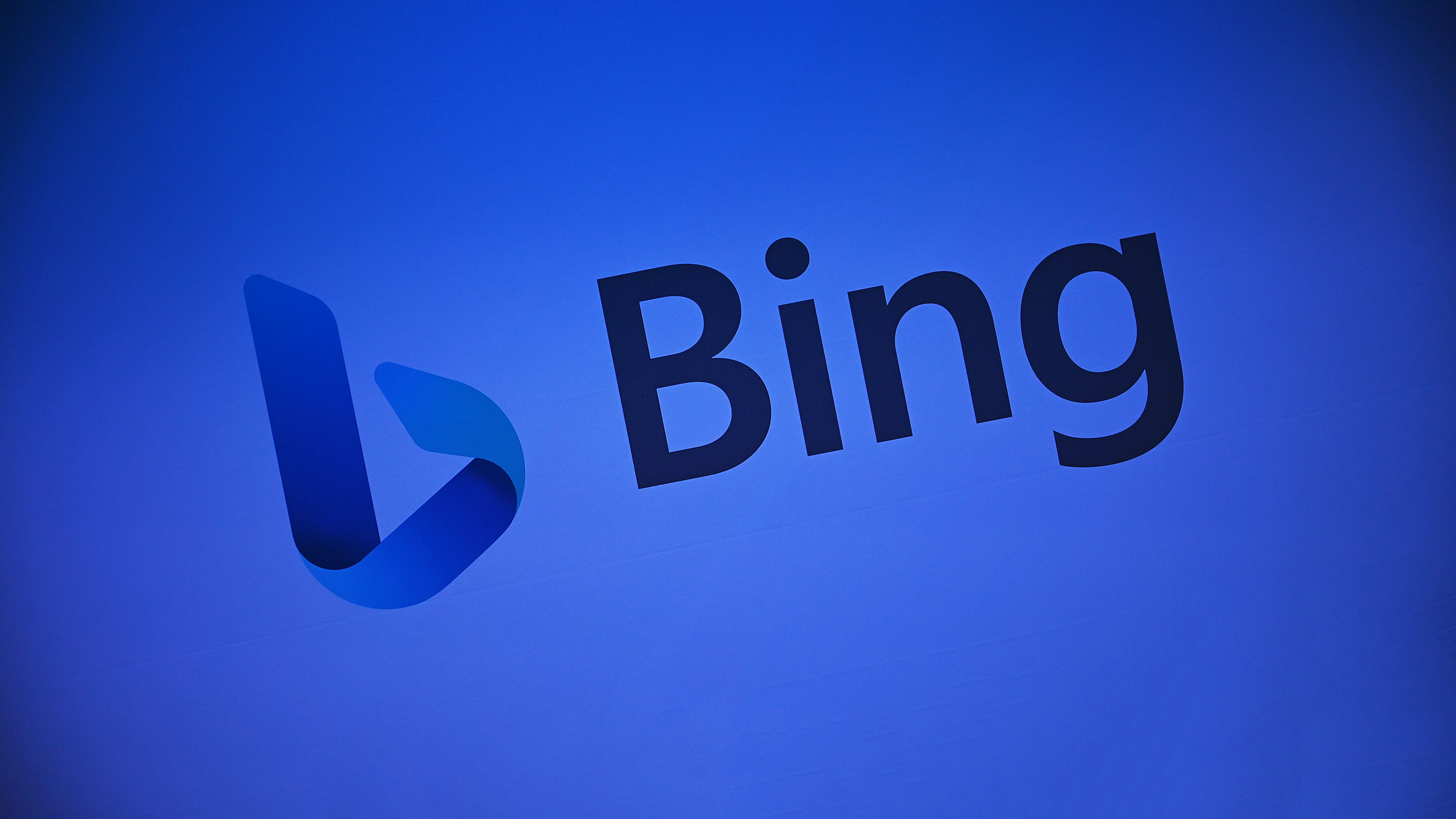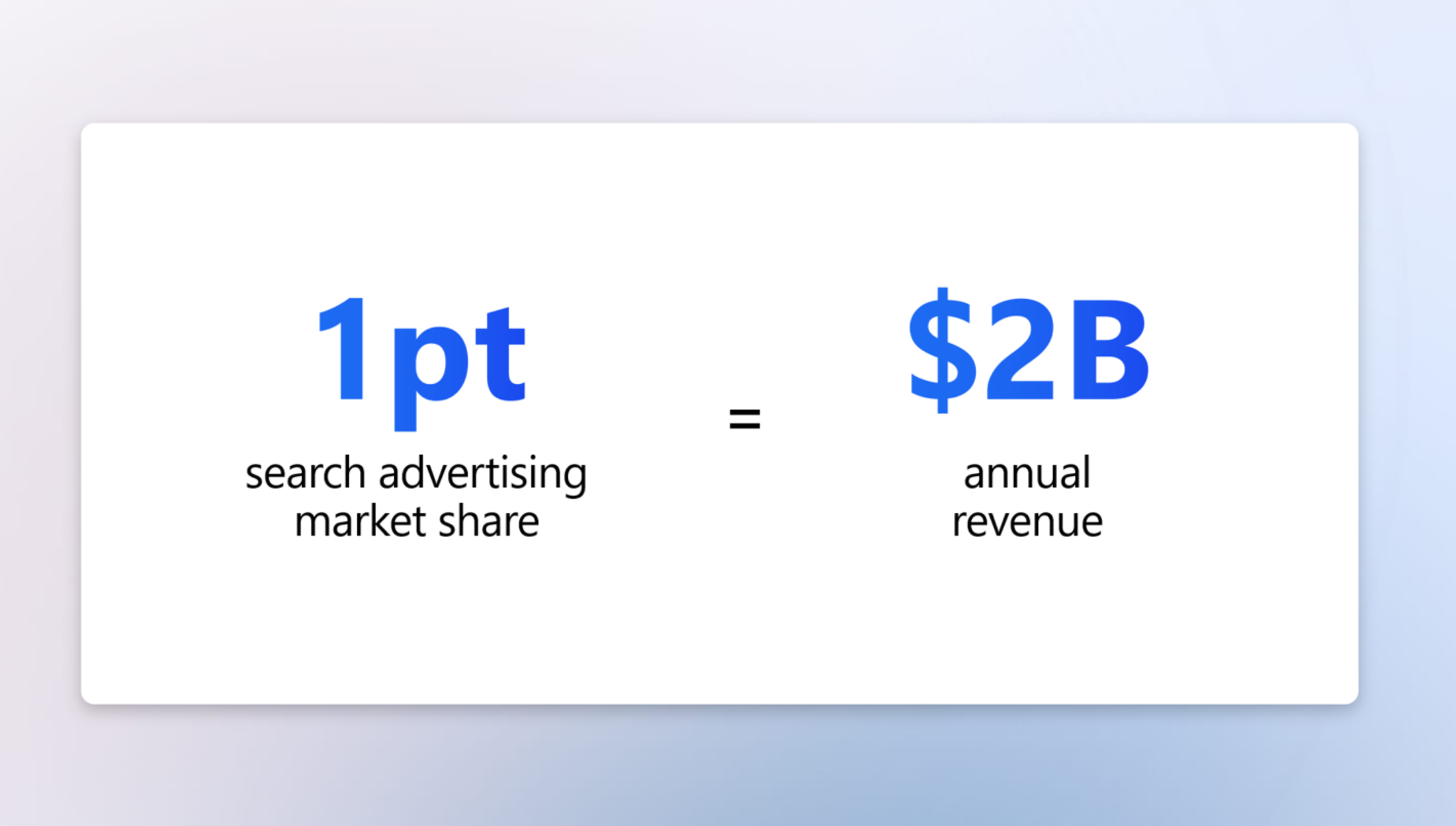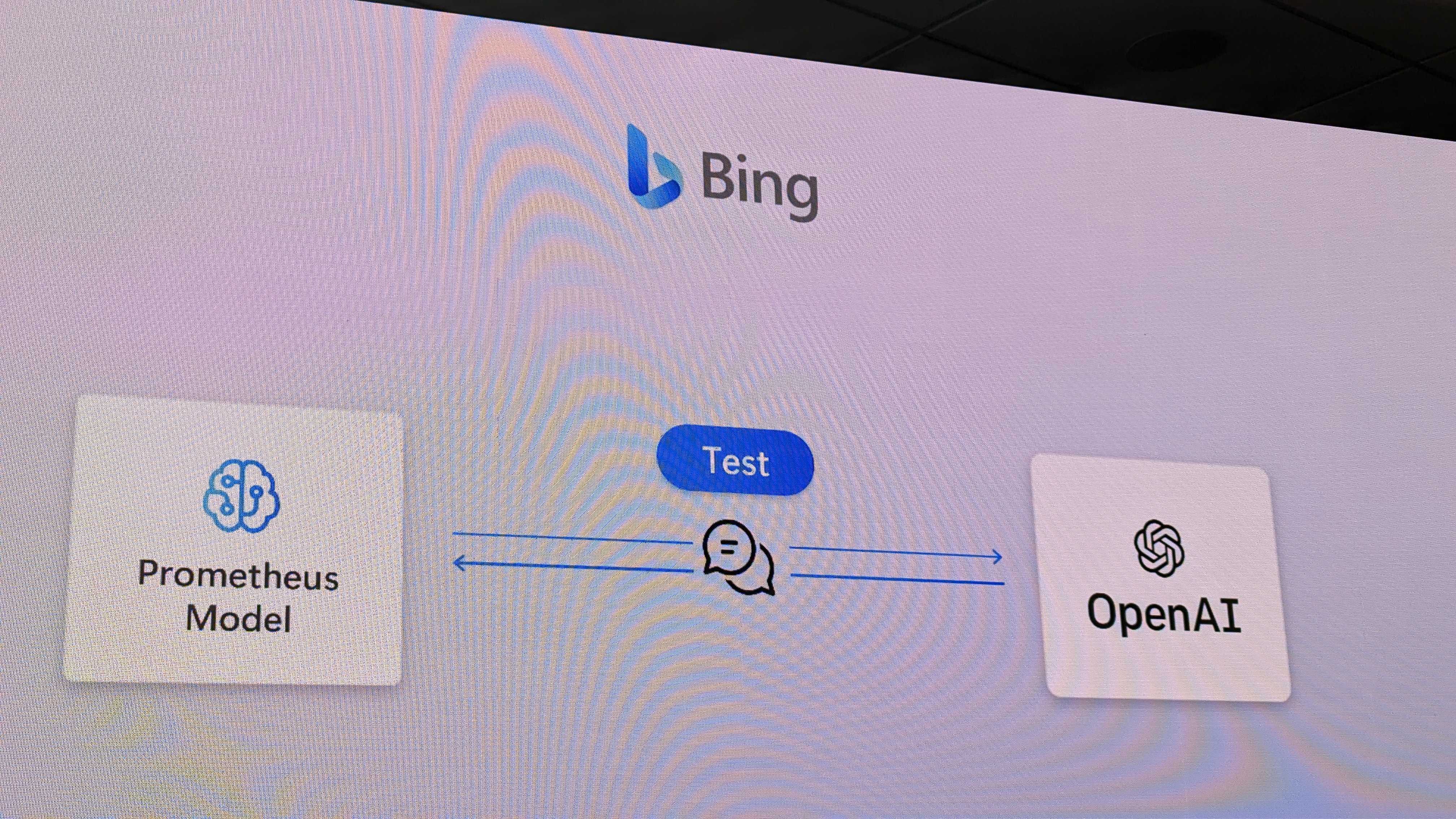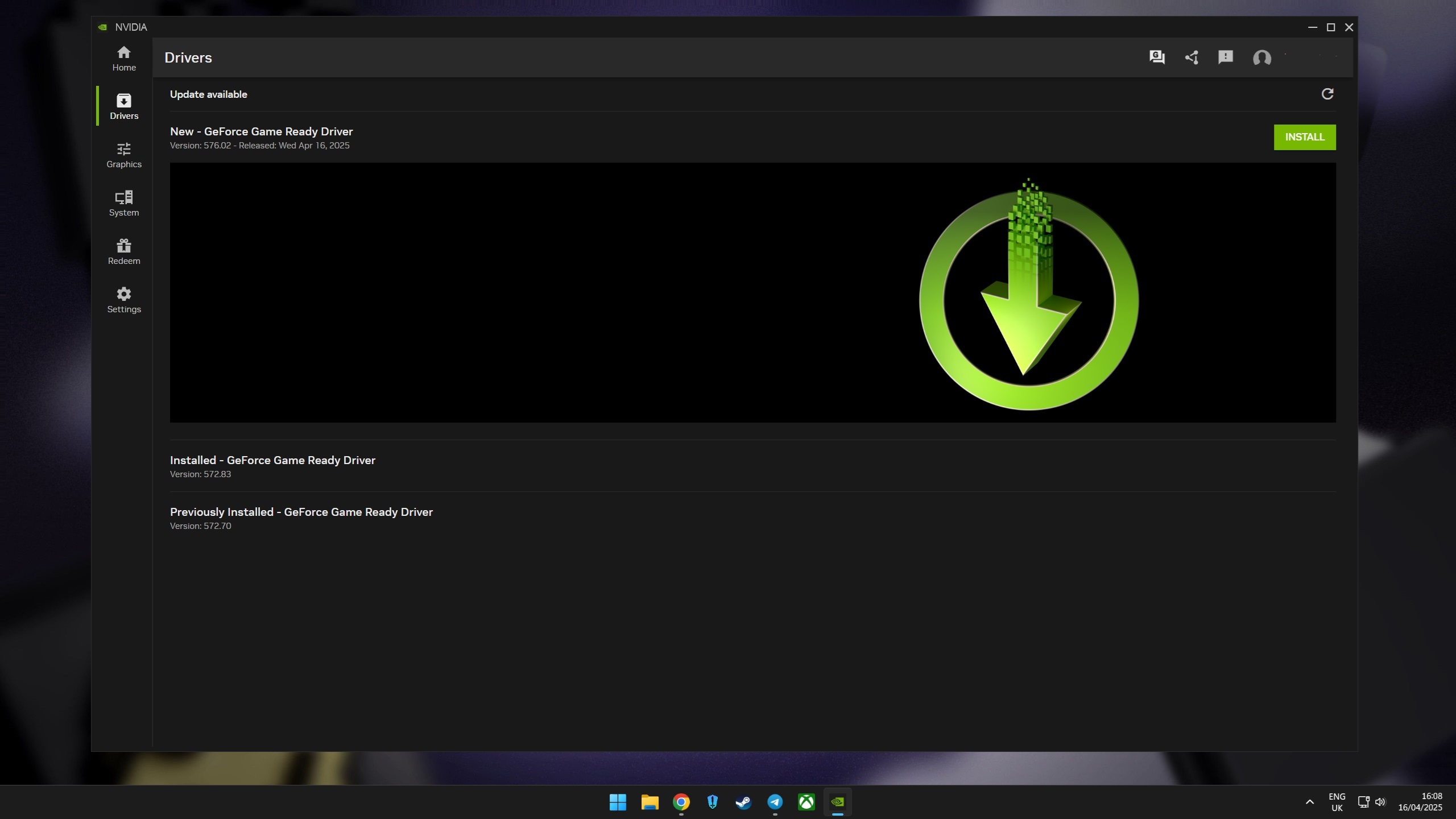Microsoft doesn't need to catch up to Google to make billions in search
Microsoft could make billions by gaining just a few points in search market share.

Microsoft's newly revamped Bing is the talk of the tech world, but the search engine still sits light years away from search market leader Google. Is that a bad thing? Is that something Microsoft needs to change? The answers may surprise you.
While I'm sure Microsoft would love to be a market leader in another category, it's not necessary for Bing to surpass Google to be considered successful. Search is an absolutely massive industry — over half a trillion dollars per year big. Microsoft could take a relatively small bite out of Google's share and make quite a bit of money.
Small gains, big revenue
During a recent investor call, Microsoft discussed the business opportunity created by the new Bing and new Edge, both of which are powered by artificial intelligence. The presentation included projections and forward-looking statements from Executive VP and CFO Amy Hood, CVP and CFO Phil Ockenden, and VP of Investor Relations Brett Eversen.
They illustrated the growth opportunity for Bing, which comes in part due to the massive size of the Search industry.
"New users, higher engagement, and increased advertising rates will fuel revenue growth. As Amy mentioned earlier, the digital advertising TAM is over half a trillion dollars, and within that, approximately 40% is in search advertising. For every one point of share gain in the search advertising market, it’s a $2 billion revenue opportunity for our advertising business," said Ockenden (emphasis added).

According to Statcounter, Bing sits at just over 3% in search market share. Google holds almost 93% of the market. The chances of Bing closing an 89% gap are rather small, but that doesn't need to be Microsoft's goal. If Microsoft could steal just a few percentage points in market share, that would bring in billions of dollars in revenue each year.
Based on the interest we've seen in the new Bing in just the first week since the new search engine was announced, it's possible that Microsoft could see notable gains in both market share and revenue.
Get the Windows Central Newsletter
All the latest news, reviews, and guides for Windows and Xbox diehards.
"Today, our share of the search advertising market is mostly on Windows PCs, which is where we expect to see the initial benefits from the volume and rate growth," said Ockenden.
"We particularly have an opportunity to grow in international markets, given the large language models enable better translation and a better understanding of local market content."
Counteracting the cost of AI

While ChatGPT has seen great interest from the public, it's not currently profitable. OpenAI CEO Sam Altman said that it averages single-digit cents every time someone asks ChatGPT a question. Tom Goldstein, an associate professor at the University of Maryland, estimated that it costs OpenAI approximately $3 million per month to run ChatGPT.
Altman has been frank about the fact that Open AI will have to figure out a way to monetize ChatGPT at some point. Bing could be part of the solution.
I'll leave it to Microsoft and OpenAI to work out the details, but if Microsoft makes $2 billion per year for every one point it gains in search market share and OpenAI's ChatGPT helps Microsoft gain market share, it seems reasonable that both sides could benefit financially. Add on top of that the fact that Microsoft is the exclusive cloud provider of ChatGPT and you've got yourself a viable way to fund OpenAI's chatbot efforts.

Sean Endicott is a tech journalist at Windows Central, specializing in Windows, Microsoft software, AI, and PCs. He's covered major launches, from Windows 10 and 11 to the rise of AI tools like ChatGPT. Sean's journey began with the Lumia 740, leading to strong ties with app developers. Outside writing, he coaches American football, utilizing Microsoft services to manage his team. He studied broadcast journalism at Nottingham Trent University and is active on X @SeanEndicott_ and Threads @sean_endicott_.
